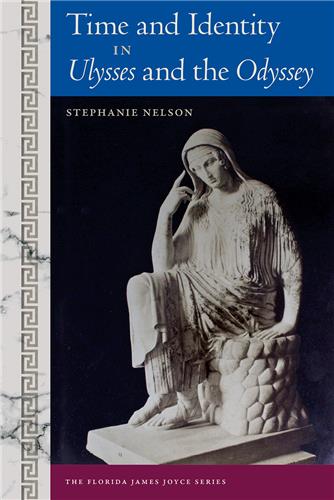Empire and Pilgrimage in Conrad and Joyce
Agata Szczeszak-Brewer
Foreword by Sebastian D. G. Knowles, series editorPaper: $19.95
- Series: The Florida James Joyce Series
“Essential reading.”—Modern Fiction Studies
“At the heart of Szczeszak-Brewer’s analysis is the idea that both Conrad and Joyce, as modernists, are deeply concerned with interrogating the colonizing impulse. . . . With its striking discussions of the intersections of modernism, religion, and colonialism, [this book] is a useful and original addition to the field.”—James Joyce Quarterly
“Explores how Conrad and Joyce use the religious motif of the pilgrimage to denounce western colonization practices. . . . By virtue of its original approach to the works and worlds of Conrad and Joyce, this book will interest scholars in a variety of fields, from cultural studies, history, and religion, to literature and beyond.”—European Legacy
"Original and significant. This book shows us how Conrad and Joyce manipulate representations of imperialist belief in the sacred to indict Western culture for its racist colonization. This striking reading of modernism emphasizes Conrad's and Joyce's use of chaos in general and pilgrimage in particular in terms of mapmaking, racial denigration, and strategies of power. Szczeszak-Brewer makes spectacular connections between sacred language, nation building, and literary representation."--Georgia Johnston, author of The Formation of Twentieth-Century Queer Autobiography
Though they were born a generation apart, Joseph Conrad and James Joyce shared similar life experiences and similar literary preoccupations. Both left their home countries at a relatively young age and remained lifelong expatriates.
Empire and Pilgrimage in Conrad and Joyce offers a fresh look at these two modernist writers, revealing how their rejection of organized religion and the colonial presence in their native countries allowed them to destabilize traditional notions of power, colonialism, and individual freedom in their texts. Throughout, Agata Szczeszak-Brewer ably demonstrates the ways in which these authors grapple with the same issues--the grand narrative, paralysis, hegemonic practices, the individual's pilgrimage toward unencumbered self-definition--within the rigid bounds of imperial ideologies and myths. The result is an engaging and enlightening investigation of the writings of Conrad and Joyce and of the larger literary movement to which they belonged.
Agata Szczeszak-Brewer is assistant professor of English at Wabash College.
- Sample Chapter(s):
- Table of Contents
- Excerpt
"With its striking discussions of the intersections of modernism, religion, and colonialism, [this book] is a useful and original addition to the field."
--James Joyce Quarterly
Empire and Pilgrimage in Conrad and Joyce with its wealth of invigorating readings of canonical texts, will be essential reading. . . . Agata Szczeszak-Brewer is a fresh new voice in modernism.
--Modern Fiction Studies
By virtue of its original approach to the works and worlds of Conrad and Joyce, this book will interest scholars in a variety of fields, from cultural studies, history, and religion, to literature and beyond.
--European Legacy












